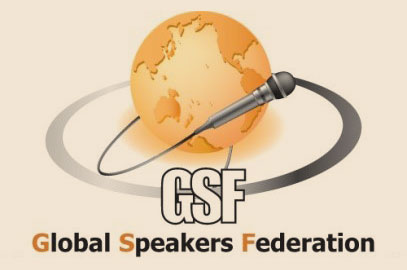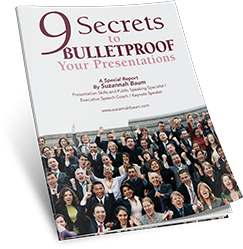Even Professional Speakers Don’t Always Get it Right
Here’s how to NOT repeat the mistakes of the famous (and sometimes overconfident) speakers.
Conference and keynote speakers have a huge responsibility.
- They are responsible to their audience to educate them with compelling content, to keep them engaged, and to ensure that they provide value in the time that they are holding the audience captive.
- They are responsible to the meeting or event planner, to ensure that their content is made relevant to the audience.
- They are responsible to themselves because if they mess up on either of the above two points, their business will eventually suffer.
At a conference that I attended a few weeks ago, where I was struggling to understand what a speaker was ultimately trying to teach us, all while trying to read his overly content-heavy slides, it reminded me of one of the most surprising conference speaker debacles I had ever experienced that happened a few years earlier….but one where the lessons remain very relevant to anyone stepping out in front of an audience.

I attended a full-day marketing and branding conference to listen to six individuals, all professional speakers, some of whom were quite “famous” on the speaker circuit. All were speakers, authors, and experts in their field. They were scheduled to take the stage for 45-60 minutes at a time, to an audience of approximately 1,000 people. Some of these speakers were more well-known than others, but all had a specific expertise, and I was eager to listen to them all and hear what they had to share.
But what I came out with was a very different set of lessons on how to be a compelling, respectful speaker. Such as:
- The speakers who can make the audience laugh the most will be rated the highest
- You don’t always need slides to get your point across concisely and powerfully
- Even the best professional speakers can be a little *too* confident, resulting in them missing the mark and completely alienate the audience
Let’s focus on point #3.

- Speaking from the floor, not the stage. One of the speakers chose to pace around the conference room floor, rather than present from the stage. Given that the room had to accommodate approximately 1,000 people it was a fairly large room. So in walking around the floor rather than staying in a location where everyone could see him, his audience was forced to twist and turn in our chairs to try to follow him. That is, until we got tired of trying to find him in the huge room, and stopped trying to follow him – and stopped listening to him as well (and might I just mention that I was 8 months pregnant when I went to see him, and at that stage, anyone who forced me to move around in my chair, and even worse — attempt to TWIST my torso — was a complete no-go for me….am I right, ladies??).
- “Shock” tactics. Many speakers/bloggers/ad agencies/whoever now subscribe to the notion that you have to be controversial to be noticed. Be direct. Be tough. Be rude. THAT’S what will get your audience to pay attention. I get it. But I don’t like it. I don’t appreciate someone who doesn’t know me telling me that I’m not working hard enough. Or writing enough books. Or that if I don’t follow his exact ‘recipe for success,’ my business will burn out like the dying embers of a summer bonfire. I didn’t like it…and neither did anyone sitting around me, who grumbled loudly enough for me to confirm this.
- ‘Stream of consciousness’ monologue – that went on waaaaaay too long. This speaker started off well enough, then lost steam about ¾ of the way through…and then wouldn’t get off the stage! At one point, he started walking back and forth across the stage, not even looking at the audience, and it almost seemed like he was practicing his speech the way you would do it at home, in front of a mirror. The content lost focus, he started focusing on telling his stories and giving advice than following audience cues – which, if he was paying attention, was yelling out “Please wrap it up!” And worst of all, he spoke for longer than an hour… beyond his allotted time, especially given that he wasn’t the final speaker of the day.

In my years teaching public speaking and coaching speakers on how to get their point across concisely and powerfully, I am always surprised when professional speakers make these types of mistakes. Don’t get me wrong, this post isn’t meant to be overly critical of these speakers. Maybe they were both trying out new material, and it didn’t work. Or maybe this exact speech works fantastically well with a different kind of audience. The point is, it didn’t work with this one, and that’s a risk that we all take whenever we get on a stage in front of an audience. We can’t always predict the future. And I’m 100% confident that these two speakers will survive. They’ll go on to speak to sold-out conferences, write and sell more books, spread their messages, and make good money.
But that doesn’t mean that we can’t learn from their mistakes.
So the next time you take the stage, keep these in mind:
- Present from the stage. Don’t present from the floor because it gets you “closer” to the audience. It doesn’t work. And frankly, it’s annoying.
- Who’s in your audience? Learn as much as you can about your audience before you take the stage – including what they’re expecting from you and your speech – so you know what kind of approach to take with them.
- Don’t try out new material when you’re on stage. Enough said.
- END ON TIME! Show respect for your audience – and the other speakers who come after you – by staying on the schedule, even if it means you have to cut a few minutes of your content.
Speaking mistakes CAN be avoided!
Check out some of these other blog posts to get more ideas about mistakes that you need to avoid as a speaker:
- 3 Common Public Speaking Mistakes and How to Fix Them (video)
- Is Your Story Helping or Hurting Your Presentation
- Three Things You Should Never Say To An Audience
(This article originally appeared in this blog dated November 18, 2010. Substantial changes have been made to the original content).




